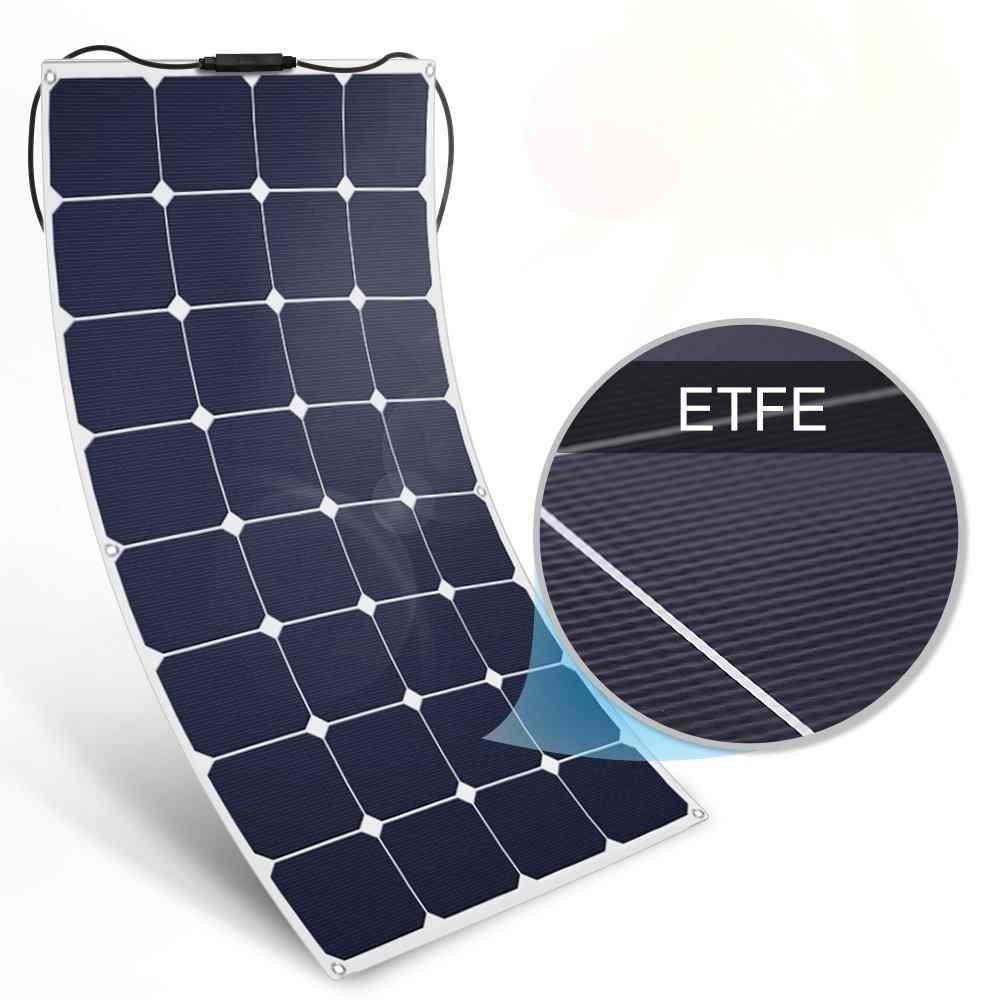Ethylene tetrafluoroethylene (ETFE) is a transparent and lightweight polymer that is sometimes used as a surface material for solar panels in certain applications. There are several reasons why ETFE may be chosen as a covering material for solar panels.
- Transparency: ETFE is highly transparent to sunlight, allowing a large portion of the incoming solar radiation to pass through to the solar cells beneath. This transparency ensures that the solar cells receive maximum sunlight exposure, thereby increasing the energy efficiency of the solar panel.
- Durability: ETFE is known for its durability and resistance to harsh environmental conditions. It can withstand exposure to UV radiation, extreme temperatures, and weathering, making it suitable for outdoor applications like solar panels. ETFE’s durability helps extend the lifespan of solar panels.
- Lightweight: ETFE is significantly lighter than traditional glass used in solar panels. This reduced weight can be advantageous in certain applications, especially when weight is a critical factor, such as in building-integrated photovoltaics (BIPV) or lightweight solar installations.
- Flexibility: ETFE is a flexible material, which means it can conform to curved surfaces or irregular shapes. This flexibility makes it suitable for innovative and aesthetically pleasing solar panel designs.
- Self-Cleaning Properties: ETFE has a non-stick surface that repels dirt and dust. Rainwater can easily wash away contaminants, helping to keep the surface clean without the need for frequent manual cleaning. This self-cleaning property reduces maintenance costs and ensures optimal light transmission to the solar cells.
- Thermal Performance: ETFE has good thermal insulation properties, which can help regulate the temperature of the solar panel and prevent overheating. This is particularly important for solar panels, as excessive heat can reduce their efficiency.
- Longevity: ETFE has a relatively long lifespan, which means it can protect the solar cells for many years without significant degradation or loss of transparency.
- Ecological Considerations: ETFE is considered an environmentally friendly material due to its recyclability. It is also produced with lower greenhouse gas emissions compared to some other plastics.
It’s important to note that while ETFE offers several advantages for certain solar panel applications, it may not be suitable for all situations. Traditional glass coverings are still commonly used in most solar panels, especially in large-scale photovoltaic installations, due to their established performance, availability, and cost-effectiveness. The choice of materials for solar panel surfaces depends on the specific requirements of the project, including factors such as cost, durability, aesthetics, and weight constraints.


